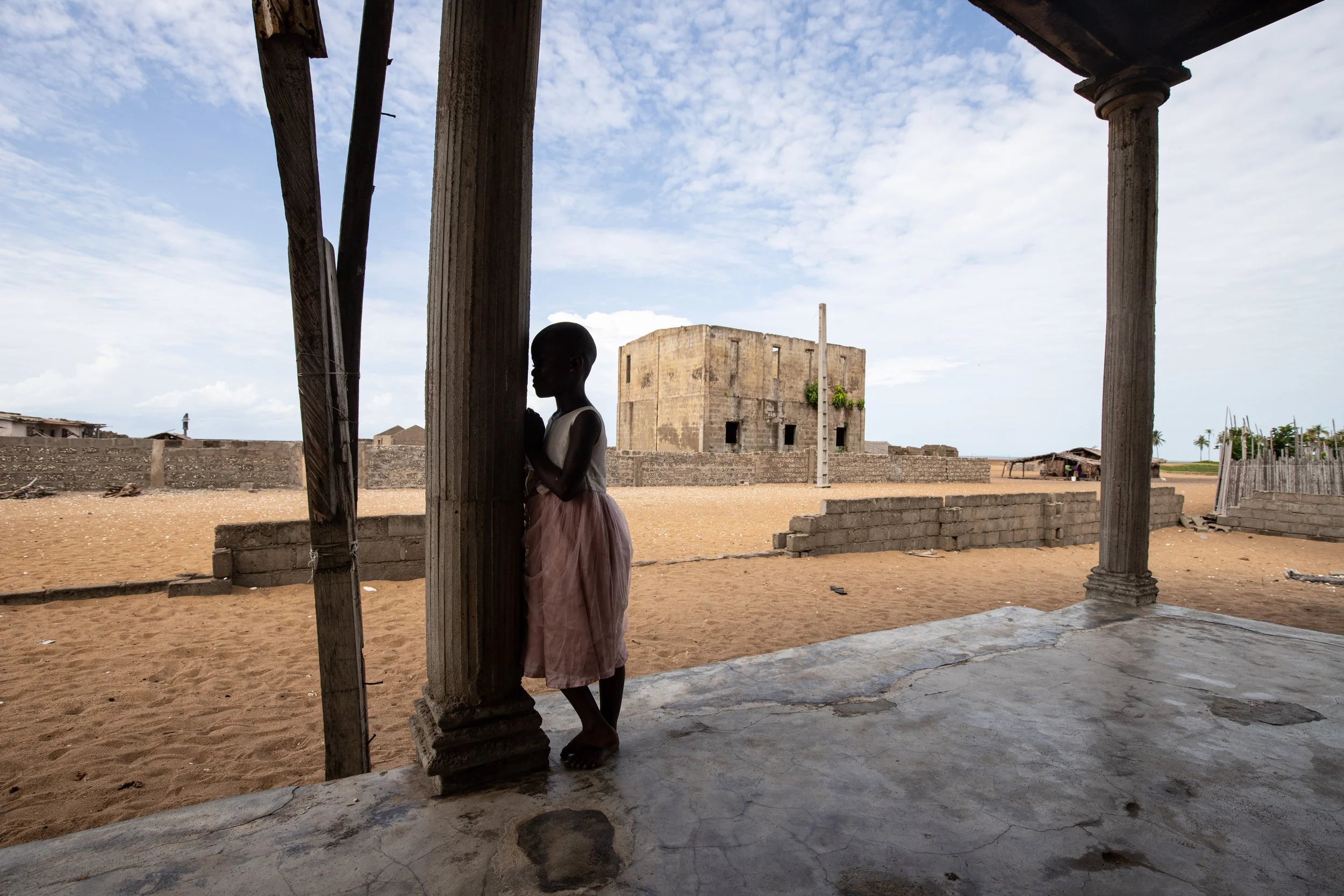












As rising sea levels slowly engulf the ancestral graves of a fishing community in Ivory Coast, residents are moving their relatives before their bodies are lost to sea forever. The coastal village of Grand-Lahou is sinking. In the past 30 years, residents of the once-thriving historic town in the Ivory Coast have seen their prison, hospital and school be subsumed by water. With the ground receding 2 meters per year, now people have started to even dig up their ancestors to ensure that their loved ones don’t get lost to the sea. It is a pressing problem in West Africa, as sea levels are rising fast due to climate change and the sand used to make bricks is causing coastal erosion.
“We have to dig up my mother,” said Franck Avit, standing next to the tomb in the decaying cemetery. “Now we are losing our ancestors,” he said. “It is like they die twice.”
Full article for Climate Change Home: here.
Done in collaboration with journalist Ingrid Gercama